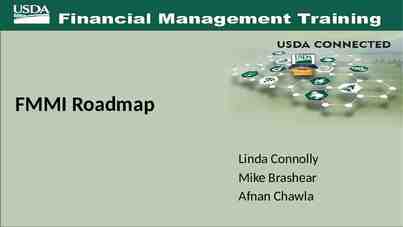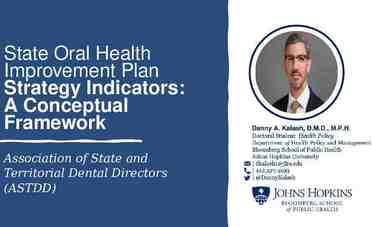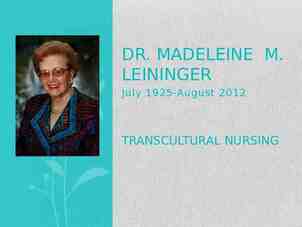Engaging Vulnerable Maternal and Child Health Populations: The Texas
21 Slides1.17 MB

Engaging Vulnerable Maternal and Child Health Populations: The Texas Healthy Start Alliance Experience Misty Wilder Kori Eberle

Objectives Overview Texas Healthy Start Alliance Understand conditions affecting Texas Maternal Child Health populations Discuss implementation challenges Discuss strategies used to overcoming barriers to engaging and serving women and their families Leveraging partnerships

Mission: To collaborate with others to promote healthy families and communities in the State of Texas through education, advocacy, capacity building and research Founded: August 28, 2009 Meet monthly via conference call first Tuesday 6 original sites: Dallas, Ft. Worth, San Antonio, Laredo, Houston & Brownsville

Texas Healthy Start Alliance Laredo Healthy Start Araceli Flores- Program Manager San Antonio Healthy Start Kori Eberle- Project Director Dallas Healthy Start Karla McCoy- Project Director Kathy Chapman- Case Management Manager Fort Worth Healthy Start Amy Raines-Milenkov- Project Director Misty Wilder- Program Manager

Vulnerable Populations Refugee Communities Minority women with low SES Homeles s families Living in colonias

Laredo, Webb County, TXColonias Colonias are unincorporated neighborhoods or subdivisions that lack physical infrastructure, (water, power and sewer systems) that together with transportation challenges are responsible for extreme disparity in access to adequate health care and affecting the health and safety of residents. Over 93% of Laredo Healthy Start clients live in these colonias and have incomes below 100% federal poverty level.

Challenges- Laredo Clients are transient Over half are immigrants with strong ties to Mexico Cultural norms include unannounced, extended visits to family members across the border Lack of means for communication, transience makes retention, care continuity, and client tracking more difficult

Strategies- Laredo Community based services through the use of a mobile medical unit and home visiting program The service team consists of a medical, case management, and outreach team (promotoras/community health workers). Medical services consist of prenatal and postpartum care which include laboratory and referral services. Unit is equipped with NST (fetal non-stress test) and ultrasound machine. Case management services focus on medical , social, financial, educational, legal, housing, parenting, and employment needs of its clients. Certified community health workers provide outreach at community health centers, door to door, and in events Transportation services are available for medical appointments for mothers and target children.

Leveraging Partnerships Laredo Partnerships with local hospital Texas Health and Human Services Commission Other agencies to provide counseling and educational services as well as other social needs. TXHSA (Texas Healthy Start Alliance HSBA (Healthy Start Border Alliance)

Ft. Worth, TX Target population: Refugee communities Provide services to refugees directly Bhutanese Nepali Karen-Burma Interpretation Services Arabic Afghani Somali And many others

Challenges & Strategies FW All participants are high-risk Staff recruitment and retention Insufficient community resources Staff burn-out Mismatch between case-loads, funding and grant requirements Strategies Hire bilingual culturally competent staff

Partnerships - FW Tarrant County Jail In jail support, partnering with health providers in jail setting Family support in community Reentry support for mother and family Services to HS child (if born in custody) Infant Health Network Existing collaboration of 15 years Annual Infant Health Summit Home Visitor Coordination Sub-Committee Collective Impact Participation Focused on women’s health

Dallas, TX Target population: African American about 60% and Latina women about 30-35% Living in areas of high infant mortality rate Low socioeconomic neighborhoods Late seeking prenatal care No insurance Smokers Substance users/ abusers History of family violence Mental health issues

Challenges & Strategies - Dallas Recruiting & enrolling mandated number of clients Limited Spanish speaking staff impacted number of Spanish speaking women women to be served Limited ability to reach women serviced outside the Parkland Health & Hospital System Community outreach Build trusting relationships Community Action Network coordinator is program “Ambassador” Restructured staffing to hire more personnel Include client participation in Community Action Network Created partnerships

Partnerships - Dallas Created MOU’s with programs/ agencies serving similar populations like WIC, Head Start and housing department Changed from consortium (network based coalition) to community action network (action-based) Strong collaborative relationships with network members for referrals.

San Antonio, TX Target population: Homeless or doubling up pregnant women living in shelters or transitional living facilities Haven for Hope Guadalupe Home Fair Weather SAMM Shelter Project Precious- VOA Shelter Couch surfing Hotels/Motels Homeless encampments

Challenges – San Antonio Transient nature Interrupted cell phone service Mental health issues Mistrust of “City” Substance use/ abuse Sex Work Criminalized homelessness History of violence

Strategies – San Antonio HOPE Team police officers refer meet with case manager and women for first visit Conduct classes within shelters to forge relationships Incentive based program helps with necessities Only case managers with proper experience, education and training work this critical cases Meet participants where they are ie. McDonald’s, park, under a bridge, in the shelter Meet participants where they are emotionally, never pass judgment, never impose. Guide. Use motivational interviewing techniques

Partnerships – San Antonio Healthy Families Network- coalition of 45 agencies all working on same goals WIC San Antonio Housing Authority Homeless shelters San Antonio Police Department Bexar County Juvenile Justice School Districts primarily SAISD and Edgewood Pregnancy testing clinics

Conclusions

Contact Information






